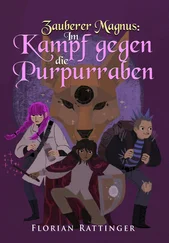Sylvie Germain - Magnus
Здесь есть возможность читать онлайн «Sylvie Germain - Magnus» весь текст электронной книги совершенно бесплатно (целиком полную версию без сокращений). В некоторых случаях можно слушать аудио, скачать через торрент в формате fb2 и присутствует краткое содержание. Год выпуска: 2008, Издательство: Dedalus Ltd, Жанр: Современная проза, на английском языке. Описание произведения, (предисловие) а так же отзывы посетителей доступны на портале библиотеки ЛибКат.
- Название:Magnus
- Автор:
- Издательство:Dedalus Ltd
- Жанр:
- Год:2008
- ISBN:нет данных
- Рейтинг книги:3 / 5. Голосов: 1
-
Избранное:Добавить в избранное
- Отзывы:
-
Ваша оценка:
- 60
- 1
- 2
- 3
- 4
- 5
Magnus: краткое содержание, описание и аннотация
Предлагаем к чтению аннотацию, описание, краткое содержание или предисловие (зависит от того, что написал сам автор книги «Magnus»). Если вы не нашли необходимую информацию о книге — напишите в комментариях, мы постараемся отыскать её.
Magnus — читать онлайн бесплатно полную книгу (весь текст) целиком
Ниже представлен текст книги, разбитый по страницам. Система сохранения места последней прочитанной страницы, позволяет с удобством читать онлайн бесплатно книгу «Magnus», без необходимости каждый раз заново искать на чём Вы остановились. Поставьте закладку, и сможете в любой момент перейти на страницу, на которой закончили чтение.
Интервал:
Закладка:
‘Since you’ve read the novel, you know that Juan Preciado is in fact already dead when the story begins. Well, in my own way I too was dead. Adam Schmalker was a delusion. It was natural he should collapse on the edge of the slope, and evaporate in the sun. It had gone on only too long.’
This reply leaves her perplexed for she is not sure she quite follows its skewed logic, but she is in no further doubt this decidedly disconcerting young man is in full possession of his wits, indeed that he has acquired greater lucidity in his wandering delirium.
‘I have the bizarre impression of understanding what you are going through and at the same not understanding at all,’ she says eventually. ‘When you’re completely recovered I’d like you to explain to me who you are.’
He smiles with a weary bitter expression for he too, more than anyone else, would like to know who he is. For the time being, he only knows who he is not, never was and will never again believe himself to be: the Dunkeltals’ son. A deliverance. But he feels bereft — of his borrowed name, his false relationship — with the name of a teddy bear for his sole substituted identity. A name that as in the past he assumes for want of a better.
Magnus. Alias Magnus. By this fanciful designation he decides to enter at last the age of manhood.
Sequence
‘My mother,’ I said. ‘My mother’s dead.’
‘So that’s why her voice sounded so weak, as if it had to travel a great distance. Now I understand. And when did that happen, that she died?…
‘Oh yes, I came close to being your mother. She never told you anything about that?’
Juan Rulfo, Pedro Pàramo
Fragment 13
Magnus’s body, the smell of his skin, the taste of his lips, the throatiness of his breathing in the climax of love-making — May soon has enjoyment of these pleasures. She falls hopelessly in love with this young man eleven years her junior. It is this difference in age, and the fear he may one day lose interest in her in favour of younger women, that makes her apprehensive, but what she fears most of all is the strength of her physical attraction to him, her insatiable and jealous desire. She feels pinioned by this violent longing for him, enthralled by this unexpected love that has completely taken possession of her. She has always set out to be strong, free from all constraint. She has had many lovers since the day she married Terence at the age of eighteen, but none has ever conquered her in such a way before. She was always able to remain in control of the situation. But now she is defenceless. However, she has enough pride and shrewdness not to betray to Magnus the state of dependence to which he has unwittingly reduced her. With charm and gaiety she does her utmost to retain her allure for him.
Magnus in fact has no inkling of how hard May is battling against the passion he has aroused in her, and he himself is not allowing full freedom to his own amorous feelings for he cannot envisage a lasting relationship. The Gleanerstones seem to form too close a couple to leave room for anyone else. But these fears of delusion and heartbreak are groundless since Terence is May’s husband in name only. He is a very chaste spouse, she explains with laughter, and very accommodating, because he prefers men, and has affairs only with male lovers. Their marriage is a contract that has satisfied both of them since the outset. A very flexible contract, based on respect and affection, strengthened over the years by a deep mutual understanding. Terence and May are cousins. This marriage offered one of them the cloak of respectability required by his social class, and the other an escape from the family yoke and a freedom she had dreamed of since childhood. While they remain discreet about their short-lived affairs, any new lover who becomes at all important to them is always introduced to the other spouse. If a friendship develops between those two, nothing better; otherwise, the liaison is conducted in private and ends in its own good time without compromising the couple’s relationship with each other. For the past two years Terence has had a companion, Scott, with whom he is very much in love, and for whom May has a very high regard. She explains all this straightforwardly, as if this kind of married relationship were a matter of course. And, at first a little disconcerted, Magnus soon finds that he has a place of complete integrity within this couple at once united and independent of each other.
He returns to London and May goes with him. It is an opportunity for her to renew her acquaintance with this city and visit friends there. Most of all, she is determined to remain close to Magnus, anxious to know how things will go when he gets back to the uncle and aunt he now knows not to be his relatives, what explanations they will give, and finally what he will decide to do after this encounter. She has suggested he come and live in San Francisco, but without daring to be too insistent.
The evening of his return to the Schmalkers, Magnus questions Lothar.
‘Why did you convince me I was your nephew, and so the son of those people who inflicted themselves on me? Why keep me deceived? Why lie to me all that time?’
Lothar could deny everything. He could feign incomprehension in the face of the accusatory questions of the young man who insists on being called Magnus from now on. He could hide behind the fact he had broken off all contact with his sister at the time the child must have been born, that he was living in exile when she adopted him, if indeed this were the case. He could pretend to know nothing, or put his accuser in the dock instead, by asking him where he gets this sudden conviction he is not the son of Thea and Clemens Dunkeltal? Who has told him this alleged secret? What proof does he have? But Lothar does not do this. He does not want to. The moment he had been expecting, but was constantly putting off as he so dreaded it, all of a sudden has arrived. The moment to admit finally to a lie perpetuated by inordinate discretion.
Yes, he knew. He had known for a long time his sister was barren, and no fertility treatment had been able to reverse this. Her younger brothers had taken the place of sons. It was after their death that the idea of adopting a child had developed, become an obsession with her. When the opportunity presented itself she seized it, for the first time ever defying her husband, who had no desire whatsoever to take in any foundling, and felt all the more reluctant to do so having just fathered a son, illegitimate admittedly but nonetheless his. To what extent Thea was aware of Clemens’ infidelity, Lothar could not tell. She had always expended so much energy in denying anything that might upset her, interfere with her exalted vision of the world, she might have deliberately closed her eyes to that as well.
But the story of this adoption, explains Lothar, he only heard about later when his sister after some fifteen years’ silence wrote asking him to come to Friedrichshafen. She knew she had not much longer to live, and she was concerned about her son. For despite everything, she thought of him as her son and she had loved him. But she had no one to whom she could entrust this child; her close family were dead, her friends had gone their separate ways, and she had managed to isolate herself completely. Then she remembered her elder brother, the brother she had insulted when he opposed the regime, whom she had despised when he married a young woman of Jewish origin, then regarded as a traitor when he emigrated to an enemy country. But it was not only because she had no one else to turn to that she appealed to him, but because she had no doubt he would respond to her appeal. That he would respond immediately, and would undertake without fail the mission she wanted him to accomplish. Her animosity towards Lothar notwithstanding, her trust in him remained intact, and as death neared, it came to the fore again. Whether or not the child should be told the truth, she left it up to Lothar to decide. Even this lie, which after all she had meticulously and doggedly constructed, a lie she had jealously protected, was something she no longer cared about. She no longer cared about anything, had lost the will to fight, the desire to live, the strength to love or hate. She had no expectations, of either forgiveness or pity from anyone, no hopes whatsoever, she believed in nothing. She had plumbed the depths of despair and was preparing to die in a state of total indifference towards herself. Passing into nothingness, that was all. Only the future of this adoptive son, of whose origins she knew nothing except that he had survived the bombing of a city, still mattered to her, and only the brother she had violently rejected seemed worthy of trust. Thea had lived her life from beginning to end ruled by a mixture of paradoxes and convictions as unshakeable as they were arbitrary, without ever questioning her position.
Читать дальшеИнтервал:
Закладка:
Похожие книги на «Magnus»
Представляем Вашему вниманию похожие книги на «Magnus» списком для выбора. Мы отобрали схожую по названию и смыслу литературу в надежде предоставить читателям больше вариантов отыскать новые, интересные, ещё непрочитанные произведения.
Обсуждение, отзывы о книге «Magnus» и просто собственные мнения читателей. Оставьте ваши комментарии, напишите, что Вы думаете о произведении, его смысле или главных героях. Укажите что конкретно понравилось, а что нет, и почему Вы так считаете.












